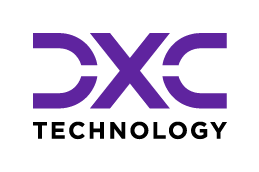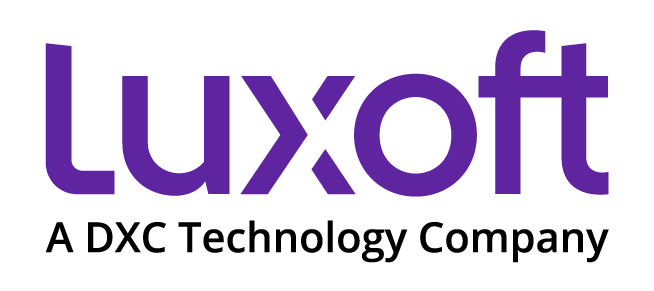W10 Friday Interactive Day of the Special Initiative on Autonomous Systems Design
Sponsors


![]()
Thanks to the sponsorship, participants can register for the workshop free of charge via the online registration platform.
Program
W10.S1 Opening & Keynote
8:30 - 8:45: Opening of ASD Friday Interactive Day, Introduction of Sponsors
8:45 - 9:30: Keynote: Trustworthy Autonomous Systems Development
Keynote Speaker: Joseph Sifakis, Verimag Laboratory
Session Chair: Rolf Ernst, TU Braunschweig, DE
Abstract: Autonomous systems emerge from the needs to automate existing organizations by progressive replacement of human operators by autonomous agents. Their development raises multi-faceted challenges, which go well beyond the limits of weak AI.
We attempt an analysis of the current state of art focusing on design and validation.
First, we explain that existing approaches to agent design are unsatisfactory. Traditional model-based approaches are defeated by the complexity of the problem, while solutions based on end-to-end machine learning fail to provide the necessary trustworthiness guarantees. We advocate "hybrid design" solutions that take the best of each approach and seek tradeoffs between trustworthiness and performance. In addition, we argue that traditional case-by-case risk analysis and mitigation techniques are failing to scale, and we discuss the trend away from correctness at design time and toward reliance on runtime assurance techniques.
Second, we explain that simulation and testing remain the only realistic approach for global validation, and we show how current methods and practices can be transposed to autonomous systems by identifying the technical requirements involved.
We conclude by discussing the factors that will play a decisive role in the acceptance of autonomous systems, and by arguing for the urgent need for new theoretical foundations.
W10.S2 Human-Machine Systems
The technology of autonomous vehicles continues advancing, but there will be a long time before human-driven vehicles are completely replaced by fully-autonomous vehicles. Therefore, mixed traffic environments need to be taken care of to provide safe, efficient, and comfortable transportation. In this session, the experts will discuss the roles of autonomous vehicles, human-driven vehicles, and roadside units and share their visions on human-machine systems. The ultimate goal is to support a smooth transition from current transportation to autonomous transportation.
Agenda of Talks and Speakers/Panelists:
- 09:30 - 09:45: "Towards Cooperative Autonomous Vehicles for Mixed Traffic Environments", Shunsuke Aoki, National Institute of Informatics, JP
- 09:45 - 10:00: "Automation as a Service Provider for Shared Mobility", Meike Jipp, German Aerospace Center (DLR), DE
- 10:00 - 10:15: "Human-Like Autonomous Driving and Human-Machine Systems", Chen Lv, Nanyang Technological University, SG
- 10:15 - 10:45: Interactive panel discussion on Human-Machine Systems
W10.B1 Break
W10.S3 Hardware and Components
For the design of autonomous systems, powerful hardware and system components are as much a core enabler of advanced autonomy as the software running on them. With the increase in cognitive capabilities by integration of computation and sensing platforms, many opportunities as well as challenges arise, such that both hardware and AI-centric software can operate fully synergetic and, hence, reach their full potential. The purpose of this session is to discuss the latest trends in hardware components and their design aspects for efficient and holistic integration of computation, sensing and communication.
Agenda of Talks and Speakers/Panelists:
- 11:00 - 11:15: "PULP: An Open Ultra Low-Power Platform for Autonomous Nano Drones", Luca Benini, ETH Zürich, CH
- 11:15 - 11:30: "Challenges & Solutions for Next-Generation E/E Architectures", Bart Vermeulen, NXP, NL
- 11:30 - 11:45: "Efficient Machine Learning: Algorithms-Circuits-Devices Co-design", Hai (Helen) Li, Duke University, US
- 11:45 - 12:15: Interactive panel discussion on Hardware and Components
W10.B2 Lunch Break
W10.S4 Panel on Autonomous Systems Design
Organizers:
- David Harel, Weizmann Institute of Science
- Joseph Sifakis, Verimag Laboratory
Moderator:
- David Harel, Weizmann Institute of Science
Panelists:
- Sandeep Neema, Darpa
- Alberto Sangiovanni, Berkeley
- Carlo Ghezzi, Politecnico di Milano
- Simon Burton, Fraunhofer
- Michael Paulitsch, Intel
- Arne Haman, Bosch
Topics to be discussed by the panel:
1) What is your vision for AS? For example, the role of these systems in the IoT and AI revolutions; autonomy as a step from weak to strong AI; the gap between automated and autonomous systems.
2) What challenges do you see in AS design? For example, AI-enabled end-to-end solutions; "hybrid design" approaches, integrating model- and data-driven components; systems engineering issues.
3) How should we ensure the reliability of AS? For example, achieving explainable AI; adapting and extending rigorous V&V techniques to ASs; ensuring safety based exclusively on simulation and testing.
4) Looking to the future, is the vision of total autonomy viable? how can we make it happen? For example, decisive factors for acceptance; research challenges; ethical issues; "easy" total autonomy categories.
W10.B3 Break
W10.S5 V2X, Edge Computing and Connected Applications
Connectivity realizes many advanced applications for vehicles. Especially, the interactions between vehicles and edge servers (or roadside units) further boost the trend and involve more players in the business. In this session, the experts from an auto-maker, a supplier, a high-tech company, and a start-up will meet together, describe their roles in the connected and edge-computing environment, and discuss potential integration or competition.
Agenda of Talks and Speakers/Panelists:
- 15:10 - 15:25: "Video Uberization Using Edge AI and Mobile Video", Chun-Ting Chou, OmniEyes, TW
- 15:25 - 15:40: "Connected Applications as Driver for Automation", Frank Hofmann, Bosch, DE
- 15:40 - 15:55: "Environmental parity between cloud and embedded edge as a foundation for software-defined vehicles", Stefano Marzani, Amazon, US
- 15:55 - 16:10: "Mobility Digital Twin with Connected Vehicles and Cloud Computing", Ziran Wang, Toyota Motor North America R&D, US
- 16:10 - 16:50: Interactive panel discussion on V2X, Edge Computing, and Connected Applications



